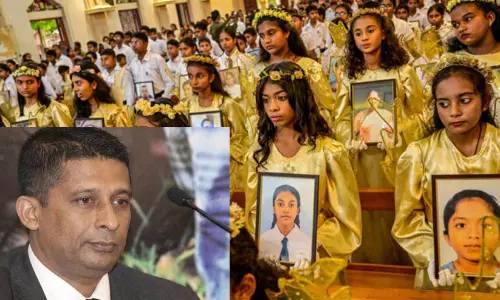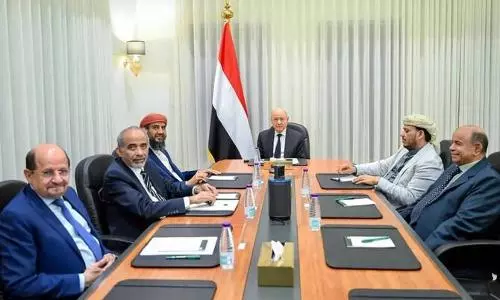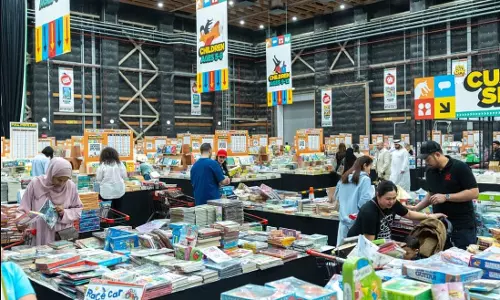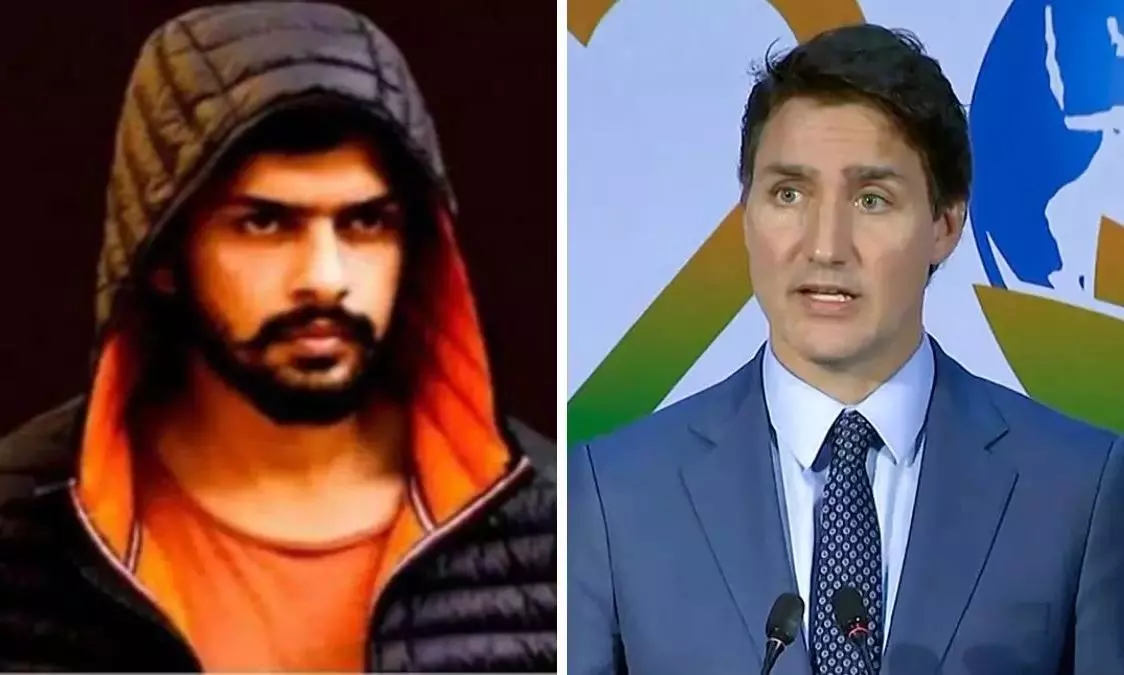
Canada accuses India of using Bishnoi gang for killings; India calls it an ambush
text_fieldsLawrence Bishnoi and Canadian Prime Minister Justin Trudeau (file photos)
The Canadian investigation into the murder of pro-Khalistani movement leader Hardeep Singh Nijjar in the country has further led to allegations of six Indian diplomats' links, prompting the Canadian authorities to request India to waive diplomatic immunity provided to them so that they could be questioned in many attacks targeting South Asians in the country using the notorious Lawrence Bishnoi gang.
Refusal to abide by the request from the Indian side has escalated to a peak of diplomatic tension between both countries, with India expelling Canadian diplomats from the country in reciprocity with Canada’s expulsion of Indian envoys to their country.
Not only Canada, but the US also reportedly informed Indian authorities of the links between Indian diplomats and criminal gangs in the targeted attacks on leaders linked to the pro-Khalistani movement, asserting a murder attempt on Gurpatwant Singh Pannun in the US, prompting India to respond to the allegations as 'an ambush by both Americans and Canadians,' The Indian Express reported.
Canadian interlocutors reportedly informed New Delhi that Indian diplomats and officials were involved in identifying and surveilling pro-Khalistan elements in Canada, an assertion rejected by Indian officials. The Washington Post detailed a meeting in Singapore on Saturday between India’s National Security Advisor Ajit Doval and Canadian officials, including NSA Nathalie Drouin, where Ottawa expressed its concerns.
In an unusual statement, a US State Department spokesperson revealed that an Indian Enquiry Committee is investigating an Indian government employee involved in a foiled plot to assassinate a U.S. citizen in New York City. The committee will visit Washington, D.C., on October 15 to discuss the case and exchange information with U.S. authorities. Additionally, India is continuing its investigation into the employee's connections and will decide on further steps based on the findings.
The accusations stem from an ongoing investigation by the Royal Canadian Mounted Police (RCMP), which has linked Indian diplomats to criminal activities involving the Lawrence Bishnoi gang, a group known for its involvement in high-profile murders and violent incidents, The Wire reported.
According to Canadian authorities, the gang has been used to target individuals within the South Asian community in Canada, particularly those involved in the pro-Khalistan movement. The use of organized crime, such as the Bishnoi gang, has raised serious concerns about public safety in Canada, as per the Canadian authority.
The situation took a dramatic turn on Monday evening when both countries expelled six diplomats each, marking a new low in their strained relationship. Canada formally communicated its request for India to waive diplomatic immunity for the six diplomats, including the Indian high commissioner, as they were identified as "persons of interest" in a matter related to the investigation.
India, in response, described the Canadian allegations as "preposterous," swiftly announcing the recall of its diplomats from Canada for their safety. Subsequently, Canada declared the six Indian diplomats persona non grata, and in retaliation, India expelled six Canadian diplomats.
The RCMP revealed that its task force had gathered substantial evidence linking agents of the Indian government to violent extremism, criminal activities, and homicides in Canada. The police disclosed their findings in a rare public statement, citing concerns for public safety as the reason for going public with the details of the ongoing investigation.
The RCMP's allegations extend to Indian diplomats being involved in a broad range of criminal activities, including information gathering, coercive behaviour targeting South Asian Canadians, and interference in democratic processes.
Canadian Prime Minister Justin Trudeau weighed in on the issue, expressing serious concerns over the involvement of a foreign government in criminal activities on Canadian soil. He reiterated Canada’s commitment to investigating the matter thoroughly and urged India to cooperate.
The Canadian government also raised concerns about the safety of its citizens, particularly those in the pro-Khalistan movement, given the RCMP's findings of credible and imminent threats to life. The RCMP disclosed that it had already conducted several "Duty to Warn" actions to protect individuals in the South Asian community.
An important development in the escalating tensions came to light when reports revealed that Canadian officials had met with Indian officials, including National Security Advisor Ajit Doval, in Singapore on October 12. The meeting, which reportedly lasted five hours, was aimed at discussing the evidence linking Indian diplomats to the Bishnoi gang and their alleged involvement in the killing of Hardeep Singh Nijjar, a pro-Khalistan activist, and other violent incidents.
According to media reports, Canadian officials provided evidence of India's involvement in the attacks, but the meeting did not yield the desired outcome. Doval reportedly denied any involvement by the Indian government, even though he acknowledged Bishnoi's capacity for orchestrating violence from his jail cell in Gujarat.
The Canadian police also allege that the Indian government’s links to organized crime in Canada extend beyond the Bishnoi gang, though specific details of other groups involved have not been made public. These organized crime networks, according to the RCMP, have been used to create a perception of an unsafe environment, particularly for South Asian Canadians, by carrying out acts such as home invasions, drive-by shootings, and arson. The RCMP also pointed to at least one additional murder that has been linked to these networks, further intensifying the gravity of the situation.
The expulsion of diplomats has worsened the diplomatic standoff between the two nations, with both sides exchanging accusations and reinforcing their respective positions. Canada has made it clear that it will not tolerate any foreign interference in its domestic affairs, especially when it involves violent acts on its soil. On the other hand, India has dismissed the allegations as unfounded and has expressed concerns over the safety of its diplomats in Canada, accusing the Canadian government of being hostile towards India.























